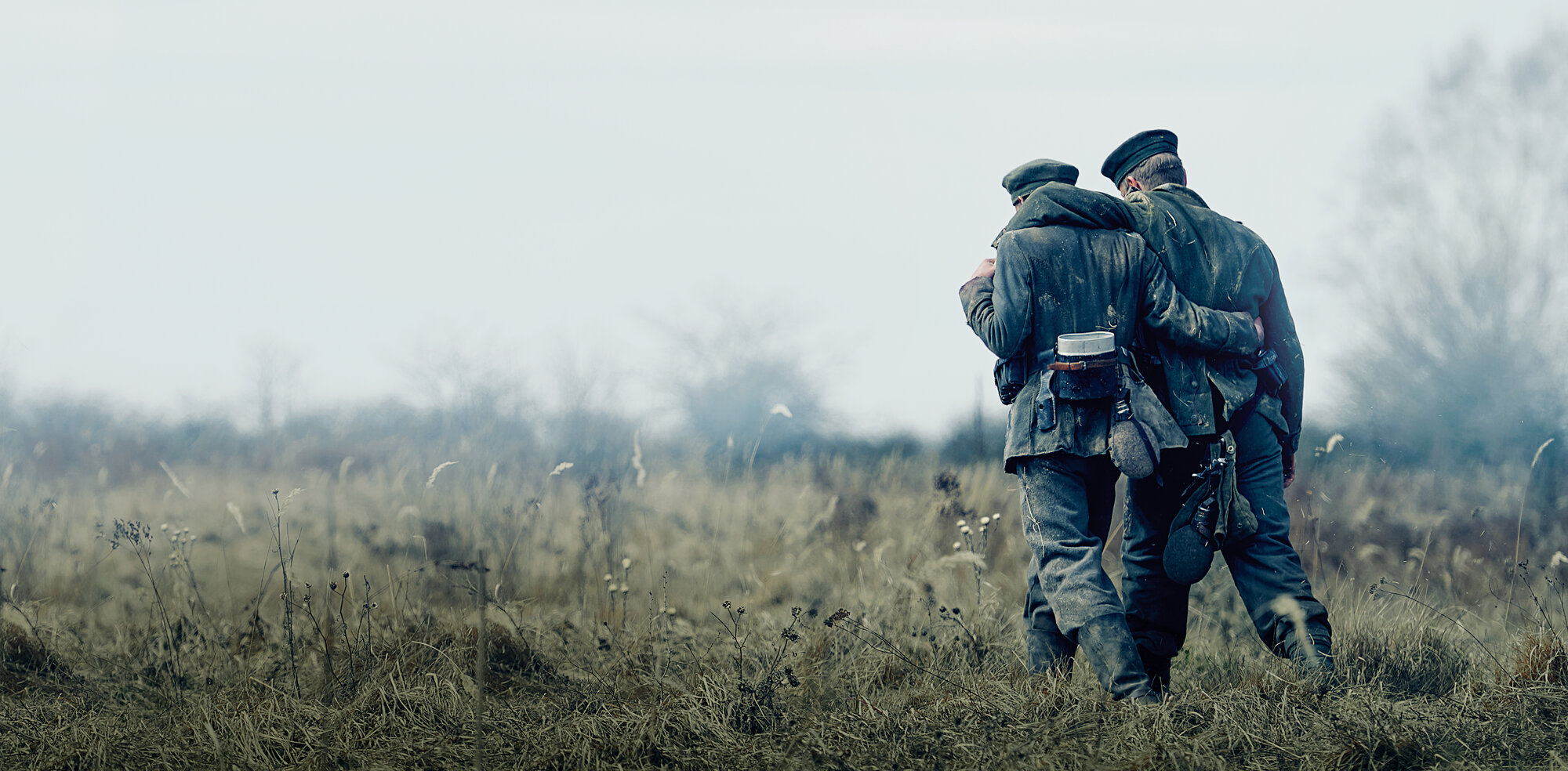All Quiet On The Western Front: The Seminal WWI Novel Gets A Bleak Netflix Adaptation
We may receive a commission on purchases made from links.
One of the most profound images in director Edward Berger's adaptation for Netflix of the seminal World War I novel All Quiet on the Western Front — beyond, for example, the wanton, nightmarish violence of close-quarters trench warfare — is actually a series of juxtapositions. The film opens and closes with shots of a forest shrouded in mist and a mountain range looming in the distance — as if to suggest, with those identical bookends, the utter uselessness of the bloodshed that occurred in between. It's the perfect visual representation of the abiding sadness that pervades the novel, such as when a soldier laments: "We were eighteen and had begun to love life and the world; and we had to shoot it to pieces."
In its opening moments, Netflix's All Quiet on the Western Front throws viewers immediately into the chaos of a pitched battle that feels like a combination of the D-Day landing scene in Saving Private Ryan, mixed with the epic scale of that final over-the-top charge in 1917. Soon enough, we follow the journey of a dead soldier's jacket, which the German war machine collects and repurposes almost as good as new so that a fresh recruit can don it before heading to the front.
A German official gives a full-throated, jingoistic speech to a crowd of too-eager German boys, urging them to fight for "the Kaiser, God, and the Fatherland" while also reminding them that war is not a game of chess involving individual pieces — but, rather, reliant on a body of men fulfilling their collective duty.

All Quiet on the Western Front - a sad, brilliant masterpiece
The movie then spends the rest of its runtime basically putting the lie to that promise, showing us that war — at least, this one — is in fact little more than a game of chess between great powers. But rather than pieces on a board moving in accordance with a larger purpose, the conflict in All Quiet on the Western Front feels like it's all tactics and no strategy. Two sides pummeling each other, until one is either backed into a corner or runs out of naive boys to throw into the meat grinder.
Feckless politicians and generals dither over a ceasefire proposal, while the horrific and indiscriminate slaughter continues. Old men talk and young men die.
"Gentlemen," an officer tells the new and still relatively hopeful German recruits as they ride to the front, "you will be fighting in a godforsaken s–thole ... Welcome to the 78th Reserve Infantry Regiment. We are now on the Western Front."
In the eyes of General Friedrich — who eats nice meals and puffs on a cigar while he watches the fighting from the safety of an estate balcony, all while complaining bitterly about how different things were when his father fought under Bismarck — war is planned and fought in the aggregate. Soldiers are numbers, dots on a map, and replaceable.
On the front line, Paul Bäumer and his friends Albert, Frantz, and Ludwig don't have the luxury of distance or of looking away from the sight of flamethrower-wielding French troops burning men to death. Or the sight of a tank rolling on top of and crushing a soldier to a pulp. Or of soldiers shooting each other point-blank and hacking away at the enemy with any sharp object they can frantically grab.
All that nationalistic fervor they had back home has brought them here, to a killing field where staying alive is as much the product of dumb luck as it is soldiering. Again, from the novel's weary soldier-narrator: "I am young, I am twenty years old; yet I know nothing of life but despair, death, fear, and fatuous superficiality cast over an abyss of sorrow."

'Somehow, this is not how I imagined it'
At one point during the film, the mud-caked Germans are ordered to do something about all the standing water in their trench that's made it impossible to keep their boots dry. They use their helmets to bail out water over the top of the trench ... while it's still raining. "Somehow, this is not how I imagined it," Ludwig laments.
Later, marching through a field, one of the Germans looks up to see a man dangling high up from a tree branch. He's told it must have been a huge explosion, because the poor fellow was blown right out of his clothes.
One of the Germans muses about how they'll all function after this is all over. "We'll be like travelers who belong in another country elsewhere."
The movie ultimately renders the First World War as one of the most catastrophic and consequential global failures of the 1900s. The closing screens tell viewers that the fighting at this point, at this moment, during the conflict had settled into more or less "positional warfare." Tens of thousands of men dying at a front line that had barely moved by the war's end. Dying for practically nothing.
The ceasefire marks the end of the war — at the eleventh hour, of the eleventh day, on the eleventh month — but it's not a happy end. And it doesn't come before General cigar-puffer decides to throw the men back into the fight at the last possible moment, simply to have gone down by striking a terrible blow. The men morosely note the time. Dying at the finish line feels like the cruelest death of all.
Netflix's conclusion of the story syncs up with the terse ending in the novel:
"He fell on October 1918, on a day that was so quiet and still on the whole front, that the army report confined itself to the single sentence: All quiet on the Western Front."


